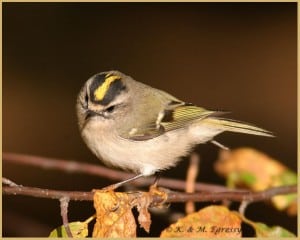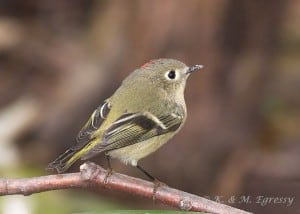The Liberals aren’t perfect, but a Conservative government would be infinitely worse
Earlier this summer, I thought I’d made up my mind. I was going to vote Green to send a message that much more aggressive climate action is necessary. I was bitterly disappointed that the Liberals had failed to deliver on their promise of electoral reform and, to boot, had bought a pipeline. But then, equal measures of pragmatism and a better understanding of the Liberals’ climate plan made me think again.
There has never been a public policy issue where the science is clearer: We know what’s happening – the climate crisis is far worse than we initially thought; we know what’s required – reducing greenhouse gas emissions by 45 percent by 2030 and to zero by 2050; and we know that the window for action is almost closed.
The federal parties’ positions are also crystal clear. The Liberals, Greens, and NDP take the climate crisis seriously, while the Conservatives barely acknowledge it’s even an issue – to wit, Andrew Scheer’s absence from the hundreds of climate events last Friday. What may be less clear for voters, however, is deciding which of the progressive parties to support.
For me, it comes down to voting for the candidate who stands the best chance of winning. In some ridings, this will be a Green or a New Democrat. In Peterborough-Kawartha, however, the race is between the Liberals and the Conservatives. That’s why my vote will be for the Liberal, Maryam Monsef. We can’t risk electing a Conservative government, even if the balance of power is held by the Greens or NDPs. Let’s not forget that Steven Harper inflicted most of his damage on environmental progress before he got his majority.
Unfortunately, there is a real possibility that the Liberals will lose on October 21, both nationally and in Peterborough-Kawartha. Why? Because a significant number of voters may say no to voting strategically this time around and simply vote with their heart. I fully understand the temptation. Some of the policies promised by the Greens and NDP are indeed superior to those of the Liberals. Be warned, however, that a splitting of the progressive vote is just what the Conservatives want.
The Liberal plan
Having lived in Quebec for many years, I closely follow the province’s environmental news. When I heard that Steven Guilbeault, a household name in Montreal, is running for the Liberals instead of the Greens, I was astounded. Guilbeault is co-founder of Quebec’s largest environmental group and the former Quebec bureau chief for Greenpeace. When asked to explain his decision, he said he’s a radical pragmatist. “I fear that the Conservatives could win the election and, if they do, everything we’ve worked for in these past four years will be gone.”
As for Trudeau’s support of the Trans Mountain Pipeline expansion, Guilbeault understands that the federal government can’t adopt policies that will completely alienate Alberta. Although he’s personally opposed to new pipelines, he points out that for every dollar the Liberals have put into the pipeline, they’ve put about 15 dollars into the fight against climate change. In a democracy, it takes time to change structures and existing policies. No government anywhere in the world has found a way to make a quick transition away from fossil fuels.
Guilbeault is not alone in defending Liberal climate policy. Mark Jaccard, professor of sustainable energy at Simon Fraser University, sees Canada as a world climate leader. According to Jaccard, the Liberals’ carbon tax, tougher fuel standards, and phased closure of coal plants are seen globally as the gold standard. His counterparts in China and India already notice the influence on their own countries’ policies. According to Jaccard’s calculations, greenhouse gas emissions under the Liberal plan would still fall 79 megatons short of our Paris commitment, while the Conservative plan would miss the mark by 179 megatons. He believes the Liberals can still reach their goal, however, by either increasing the carbon tax, turning to tougher regulations, or by some combination of both.
In this campaign, the Liberals have also promised to set legally-binding, five-year milestones to reach net-zero emissions by 2050; to halve the corporate tax rate for companies that develop or manufacture clean technology; to plant two billion trees; to provide interest-free loans of up to $40,000 to make our homes more energy-efficient and resilient to floods; to provide new incentives for purchasing zero-emission vehicles; and to create a low-cost national flood insurance program.
There are other reasons to support the Liberals if you care about the environment, not the least of which is the excellent Environment and Climate Change Minister, Catherine McKenna. The Liberals committed an unprecedented $1.3 billion in the 2018 budget for the protection of endangered species and to reach the United Nations goal of protecting 17 percent of our lands and oceans. They also have a plan to teach every young Canadian camping skills. Experiences such as camping are key to establishing a life-long love of nature.
As for the Conservatives, they have promised to reduce carbon emissions by encouraging businesses to invest an unspecified amount in green technology or research. The rest of their “plan” is all about undoing Liberal climate policy, just like what happened in Ontario. Carbon pricing? Gone. Tougher fuel standards? Gone. Measures for protecting endangered species and expanding land and ocean protection? Probably gutted. It doesn’t matter that our local Conservative candidate, Mike Skinner, is a capable and friendly guy. His party’s climate program is an abject failure.
Maryam Monsef
Maryam Monsef is both Minister of International Development and Minister for Women and Gender Equality. Her work is incredibly important, since women all over the world are disproportionally affected by the impacts of climate change. We also know that countries with high representation of women in parliament are more likely to ratify international environment treaties and that women are vital to building climate resilient communities.
We shouldn’t underestimate the importance of having an MP who sits at the cabinet table, even it means having to spend more time away from the riding. Having a cabinet minister gives Peterborough-Kawartha more leverage for investments. Monsef has already brought millions of dollars to our riding, including over two million for discovery research at Trent University and money to support the work of the Kawartha Land Trust.
Well-known outdoor educator, Jacob Rodenburg, is impressed by how Monsef supports local environmental organizations and how she is a bridge builder. He says, “Maryam Monsef is not someone who is steeped in partisan politics, but rather, is able help people of all walks of life and political stripes find common ground and common solutions.”
At the Fridays for Future student climate strike on September 20, I was chatting with Maryam when two grade 11 girls from St. Peter’s Secondary School nervously approached. They told her how much she inspired them. Maryam immediately put them at ease, congratulated them for being climate leaders in their school, and provided practical ideas for further action. As Jacob Rodenburg says, “Few people are better in dealing with youth than Maryam.”
Youth
The climate issue is very personal to me. And not only because of its devastating impact on the natural world. My son and daughters are terrified by how the climate catastrophe will disrupt their lives and those of their children – my grandchildren. They have every right to be scared. As Dr. Rosana Salvaterra pointed out at last Friday’s climate rally at Millennium Park, climate change is the number one threat to our physical and mental health. It will make everything we care about infinitely worse, be it jobs, homelessness, addiction, or the possibility of war. It’s no wonder young people question if they even have a future and why many are deciding not to have children themselves. This is why it’s so important that they see tangible progress in fighting the climate crisis.
I know that many people have misgivings about the Liberals. However, splitting the progressive vote in this election would be disastrous. Should the Liberals be re-elected, it will most likely be as a minority government. I’m hoping the Greens and NDP will have enough seats to hold the Liberals feet to the fire and maybe even force progress on electoral reform. Because climate change is front and centre in this campaign, a re-elected Liberal government will also have much greater social license for aggressive action than it did in 2015. Given the sad reality of our first-past-the-post electoral system, voting strategically is still the only logical option. The stakes couldn’t be higher.
What to watch for this week
Tiny Ruby-crowned and Golden-crowned Kinglets are now passing through the Kawarthas, often in loose flocks with Yellow-rumped Warblers and Black-capped Chickadees. Watch and listen for them in conifers and thick shrubs along roadsides and trails. The Golden-crowned’s call is a very high, thin “zee-zee-zee”. The best way to see them is by pishing whenever you hear chickadees.

